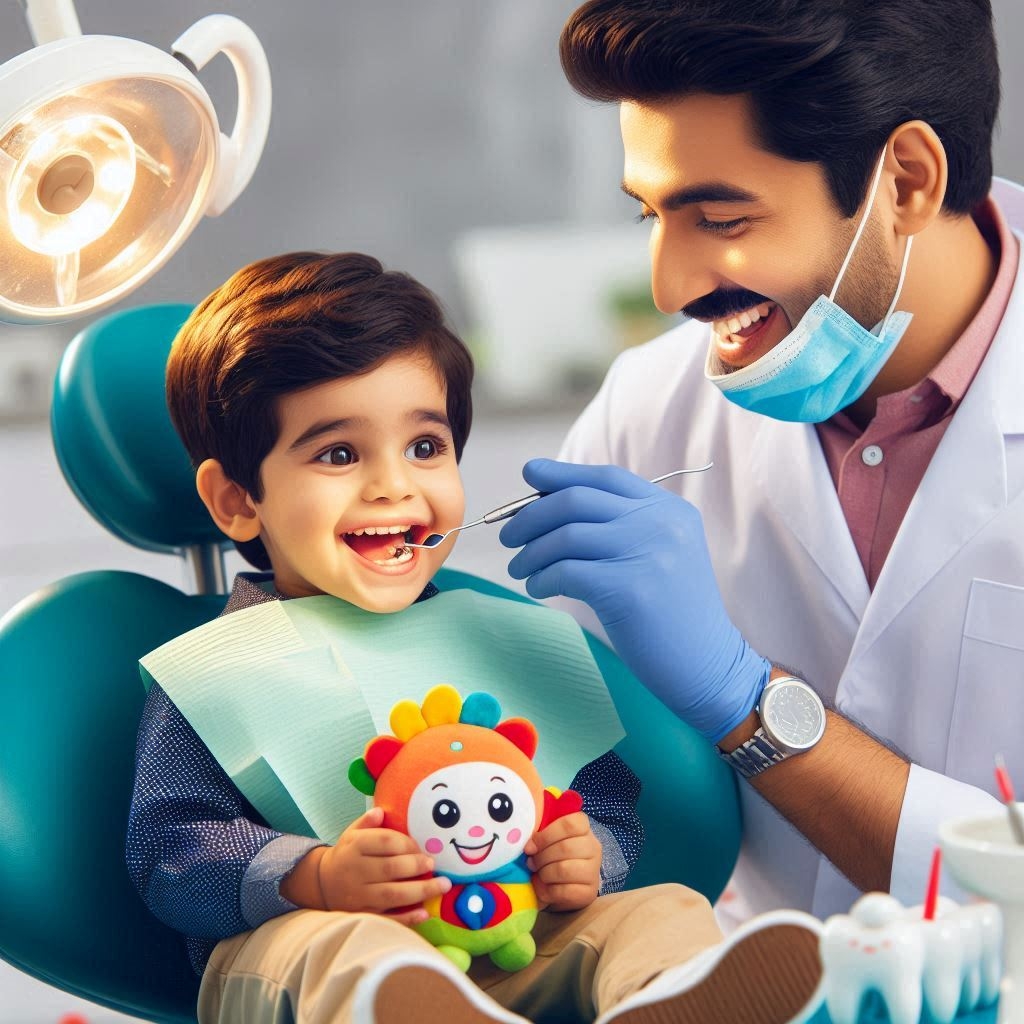
Kids are special and so are their oral needs. Pediatric Dentistry aims at tailoring dental services to meet the unique needs of growing children. Specialized dentists treating these tiny humans are known as Pedodontists. They provide comprehensive, gentle care in a warm and welcoming environment.
Kids Dentistry differs from general dentistry in several key ways. But more than treatment or instruments, the technique to guide behavior and reduce anxiety is of prime importance.
The main goals of pediatric dentistry are to track jaw expansion and tooth development, Regular teeth cleanings, early interceptive orthodontics, preventive care, and dental injury management. Pedodontists or Kids Dentist are concerned with your child’s comfort and welfare at all times.
At Clove Dental clinics, Our experts can restore your child’s smile. Our team of qualified pediatric dentists is here to help, combining exceptional expertise with genuine concern. We provide superior, remarkable care to keep your child’s teeth healthy. We cherish your child’s smiling the most.
Why is Pediatric Dentistry important?
Humans start teething when they are as young as 6 months old. During the age period from 6 months to 6 years, they develop their set of primary ‘milk’ teeth. By the age of 6-7 years, milk teeth start to fall off and a permanent set of teeth starts to appear in the oral cavity. Milk teeth being temporary, many parents tend to ignore dental visits concerning them. However, they fail to realize the importance of the timeline of milk and permanent teeth in the oral cavity.
Pedodontists (Kids Dentists) ensure proper dental development and long-term oral health.
DEVELOPMENTAL IMPORTANCE
Early dental care and intervention are crucial for a child’s growth and well-being. Pedodontists allow early intervention for misaligned bites or crowding before it progresses. Poor oral health since childhood can impact one’s speech, nutrition, self-esteem, and also social interactions.
LONG TERM BENEFITS
Pediatric dentistry focuses on preventive treatment, achieved via:
- Fluoride treatments
- Sealants
- Oral hygiene education
These aim to minimize the risk of future dental issues. It is easier to develop and incorporate good oral hygiene and dietary habits in a child. Habits formed in early childhood lead to better oral health throughout life. Identifying issues like tongue-ties or thumb-sucking allows timely correction.
Whole milk teeth are temporary, they form the basis of developing permanent teeth. If proper care is not taken, problems can emerge which will last a lifetime. In recent years, cases of caries in children have grown manifold. Therefore, it is always advised to take care of your baby’s teeth in the very early stages. Just following a good oral hygiene routine and planning regular visits to a pedodontist, yield great results in the long run.
Why do we need a Kids Specialist?
While General dentists or Children’s Dentists can treat children as well. There are several reasons why visiting a pediatric dental specialist is beneficial:
Specialized Training
Pedodontists dedicate 3+ years of their lives focused on the dental needs of children. They have extensive education and training focused on the Oral health needs of children. Along with knowledge about dental issues, their training includes child psychology and behavior guidance.
Child-Friendly Techniques
Pedodontists aim to make the dental visit feel like an adventure instead of a scary experience. They use gentle, age-appropriate communication styles to engage kids with stories or games. Their office has kid-friendly decor, toys, and rewards to help children feel at ease.
They employ positive reinforcement and sedation techniques for complex procedures. Along with standard preventive and restorative treatments, they also manage common childhood habits. Prolonged thumb sucking or tongue thrusting are seen to have negative oral effects.
So to sum it up,
Pedodontists ensure a positive introduction to dental care while monitoring oro-facial development. They offer consistent support and guidance from infancy through adolescence. Their specialization allows them to identify issues early on. This helps in addressing them before they potentially become more complicated long-term problems.
Treatments offered by a Pediatric Dentist
Pediatric dentists work towards maintaining Good Oral health in kids. The comprehensive treatment provided by them includes
Preventive Care
- Examinations of infants and teens, including oral caries risk assessment
- Professional cleanings and fluoride treatment to strengthen teeth
- Dental sealants to prevent cavities in molars
- Habit counseling to address thumb-sucking, tongue-thrusting, etc
Restorative Procedures
- Treatment of tooth cavities with fillings or crowns
- Repair of dental injuries like chips, cracks, or knocked-out teeth
- Interceptive orthodontics to guide proper jaw growth and tooth alignment
Emergency Services:
- Prompt care for toothaches, infections, trauma, or severe decay
- Management of gum injuries and issues affecting the oral mucosa
Additional Services:
- Correction of crooked and misaligned teeth with braces or aligners
- Treatment for conditions like tongue-ties that impact feeding
- Education for parents on home oral care, diet, and fluoride needs
Pedodontist’s diverse skill set allows them to:
- Track development
- Provide preventive therapies
- Deliver child-friendly restorative treatments tailored to each stage of childhood. Their training in behavior guidance ensures a positive dental experience.
Treatment Options for Kids
Prevention Treatments for Kids:
1. Fluoride Application
Fluoride imparts anti-cariogenic properties. It strengthens teeth and makes them more resistant to acid attacks from bacteria. Recommended at regular intervals.
2. Dental Sealants
Protective coatings are placed in pits/fissures of back teeth. This prevents food/bacteria accumulation and further cavities formation.
3. Toothpaste and Toothbrush
Brush twice daily with fluoride toothpaste. Flossing removes plaque from in-between teeth. Developing good oral habits early pays lifelong dividends. Make brushing a fun-filled activity for your child. Try and brush along with them and encourage them to take preventive actions.
4. Sedation Dentistry
Laughing Gas, Oral Sedatives, or General Anesthesia help relax anxious children during treatment.
5. Pain Management
Local anesthesia, pre-numbing gels, and pain medications alleviate discomfort before, during, and after procedures.
6. Teeth Gap Solutions
In case of premature loss of a baby tooth, it becomes a necessity to preserve the space created. Space maintainers are used to keep the space open for the permanent tooth to erupt in place. This appliance prevents shifting and crowding issues.
7. Dietary Recommendations
Pediatric dentists recommend limiting sugary, acidic foods/drinks that erode enamel. They guide meal planning for a balanced, teeth-friendly diet rich in calcium, vitamins, and minerals.
8. Regular Checkups
Beginning routine dental visits is recommended by their first birthday. This allows monitoring of development and timely preventive care. The aim is to establish a cavity-free childhood.
Corrective/Restorative Treatments for Kids
1. Root Canal Treatment in Milk Teeth
If you believe your child is too young to have RCT, you might be wrong. There is no age limit for this treatment. If your kids’ baby teeth have been injured, or are deeply decayed, RCT may be required to preserve the teeth. Root canal treatment removes infection from the pulp and helps to stabilize the tooth until it naturally falls out.
2. Oral Habits in Children
Thumb sucking, tongue thrusting, teeth grinding, and other habits have harmful developmental effects. Reminder appliances are called habit-breaking appliances to assist the child in quitting. They may be removable or fixed appliances. Common Appliances in Pediatric Dentistry:
- Twin Block
- Frankel
- Habit Breaking appliances
- Space Maintainers
- Head Gear
List of Dental Problems in Children
| S. No |
Dental Problems |
Treatment |
| 1 |
Tooth Decay (Cavities) |
Fillings, Crowns, Root Canals, Extractions |
| 2 |
Dental Hypersensitivity |
Desensitizing Toothpaste, Fluoride Varnish |
| 3 |
Periodontal Disease (Gum Disease) |
Scaling, Root Planing, Antibiotics |
| 4 |
Thumb Sucking |
Habit Appliances, Behavior Modification |
| 5 |
Bad Breath (Halitosis) |
Improved Oral Hygiene, Treating Underlying Causes |
| 6 |
Premature Tooth Loss |
Space Maintainers, Extractions |
| 7 |
Bruxism (Teeth Grinding) |
Night Guards, Behavior Modification |
| 8 |
Misaligned Teeth (Malocclusion) |
Orthodontics – Braces, Aligners |
| 9 |
Dental Emergencies (Trauma, Infections) |
Varies – Extractions, Pulp Treatment, Antibiotics |
| 10 |
Gingivitis (Gum Inflammation) |
Improved Oral Hygiene, Professional Cleaning |
| 11 |
Canker Sores |
Topical Medications, Dietary Changes |
| 12 |
Chipped/Fractured Teeth |
Bonding, Veneers, Crowns |
| 13 |
Tongue Thrust |
Oral Habits Appliances, Speech Therapy |
| 14 |
Baby Bottle Tooth Decay |
Fillings, Crowns, Extractions, Fluoride |
| 15 |
Dental Trauma |
Varies Based on Injury |
| 16 |
Dental Anxiety |
Sedation, Behavior Management Techniques |
What to pay for kids’ dentistry services?
Pediatric dental Cost or Kids Dentistry cost a little less than adult visits generally. For most of the services like cleaning and common checkups, the prices are affordable. However, some dental treatments can be a little higher in cost if your child’s dental health is not well maintained. You can learn more about them in detail by visiting any of our dental clinics in India. Clove Dental has experienced specialists for kids dental care right in your neighborhood. It is advised to plan a child’s first dental visit when the first tooth erupts. Book an Appointment
| Treatment Category |
Starting Price (Rs.) |
| Apexification |
7,490.00 |
| Appliances |
3,190.00 |
| Pre-fabricated Stainless Steel Bands |
2,890.00 |
| Pre-fabricated Crown |
2,690.00 |
| Extraction |
2,290.00 |
| Fluoride |
990.00 |
| RCT |
3,390.00 |
| RCT Package of 3 |
11,990.00 |
| Restoration |
1,490.00 |
| Scaling |
1,690.00 |
| SDF |
1,490.00 |
| Sealant |
890.00 |
Google Reviews
Jassa Malhi gaming channel
I am satisfied and happy with my treatment and suggestions by Dr. Savneet Kaur. Thank you Clove.
Took my kids to Dr. Anjana for a dental checkup. She was patient, friendly, and excellent with children. Highly recommend for pediatric dentistry.
Took my 2 kids with cavities to Clove Vidyaranyapura. Dr. Bhaskar was friendly, patient, and made dental visits exciting for the children.
Frequently Asked Questions (FAQs)
1. At what age should a child have their first dental Visit?
The first dental visit should be 6 months after the 1st tooth erupts. This tends to be around the time your child turns one.
2. Till what age should a child continue visiting A Pediatric Dentist?
A child must see a pediatric dentist till the age of 14. By this time, all permanent teeth have erupted in the cavity. Beyond this, it is the choice of the child and his/her parents.
3. When Should A Child Start Brushing?
A child is recommended to start brushing with the eruption of the first tooth. Pedodontists advise the amount of toothpaste should be very small, almost as much as a grain of rice.
4. Is cleaning your mouth necessary even in the absence of Teeth?
Oral hygiene maintenance irrespective of age is necessary. Parents are instructed to clean the gums (both upper and lower) of their children gently with the help of a soft wet cloth.
5. Is It Normal For Babies To Have A White Tongue?
Most babies have a white coating on their tongue in the initial few weeks, which is completely normal. There is nothing wrong with their oral hygiene.
6. What Is The Importance Of Milk Teeth?
Milk teeth are temporary and tend to fall eventually. But this does not imply they don’t matter in overall oral health. They play some important roles, like:
- They play the primary role of biting, chewing, and grinding the food before digesting it
- They are also important in speech patterns and training
- Milk teeth are the basis of the development of the jaw bones and muscles
- They provide the necessary shape of the mouth and room for permanent teeth to erupt
7. What Toothpaste Should My Child Be Using and How Many times?
For Children:
- Below 3 years of age, a smear of fluoridated toothpaste is recommended
- For children aged between 3 to 6, pea-sized amounts can be used Brushing twice daily is recommended for all ages.
8. At what age Should My Child’s Teeth start to appear?
The first baby teeth usually begin to erupt into the oral cavity around 6 months of age.
9. When Should My Child Begin Flossing?
The concept of flossing is to be introduced once your child has two teeth that are touching. Usually around the age of 2-3 years.
10. When Should My Child Have Their First Dental X-Rays?
Many Pediatric Dentists recommend getting the first set of x-rays, full mouth preferably around age 5 or 6. This helps to assess the pattern of eruption and growth.
11. By What Age Can My Child Start Using Fluoride Toothpaste & Mouthwash?
A child can begin using fluoride toothpaste as soon as they get their first tooth. Whereas fluoride mouthwash is not used until age 6 or 7.
12. What Are Shark Teeth And Does My Child Have Them?
Shark teeth are a condition where the baby tooth doesn’t fall out. This leads to the eruption of permanent teeth either in front of it or behind it. Consulting a pediatric dentist near me promptly is recommended.
13. What Do I Do If My Child Has A Chipped Tooth?
For immediate relief – Place a cotton over the chipped tooth, if bleeding is seen. If a larger piece is chipped off, try and find it, wash it under water, and place it in milk or saline water. Visit your kids dentist promptly.
14. Will Sucking Their Thumb Hurt Their Teeth?
Thumb sucking after the age of 4 years causes tooth misalignment and underdeveloped jaws.
15. When Should the First Teeth Come Out?
For most children, baby teeth start to fall out by the age of 6. All baby teeth are replaced by permanent sets by the age of 12.
16. Should Loose Teeth Be Pulled?
It is never advised to pull loose teeth forcibly. Let it fall out naturally, or visit your Kids dentist if it lingers for too long.
17. How to prevent bad dental habits in kids?
- Try and limit Sugary/Acidic food and drinks for kids
- Ensure the practice of good oral hygiene maintenance habits
- Avoid pacifiers past the appropriate age
- Keep a check for habits such as thumb sucking, nail biting, or tongue thrusting for normal jaw development
18. When will my child need braces?
Regular dental checkups allow the detection of most orthodontic issues by the age of 7. But braces treatment does not begin till the age of 12 until most permanent teeth have erupted.
19. Can a Kids Dentist Help With My Child’s Dental Anxiety?
Pedodontists create a friendly, positive environment in the dental clinic. They employ behavior modification techniques to ease dental fear in children.
Kids Play Area at Clove Dental
 Medically Reviewed
Medically Reviewed
Last Reviewed by Clove Clinical Team on July 15, 2024 | Written by Dr. Shreya Singh
Learn More About Kids Dentistry
Also, learn more about all available dental specialties and treatments at Clove Dental here.
People who viewed this page also visited




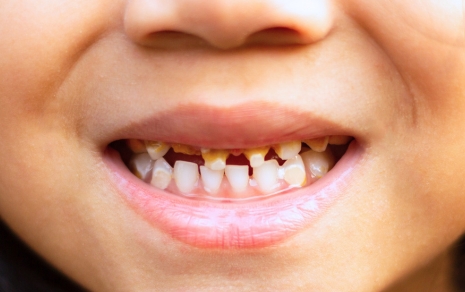
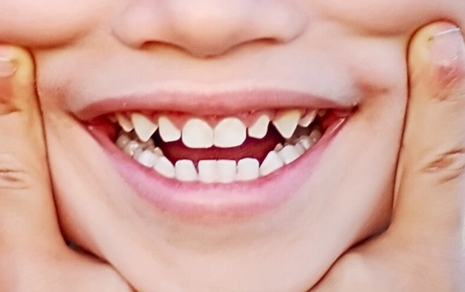
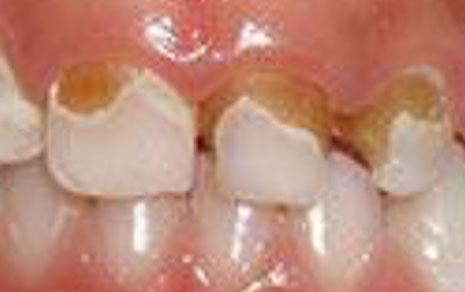
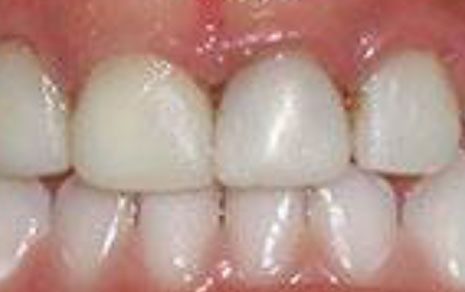

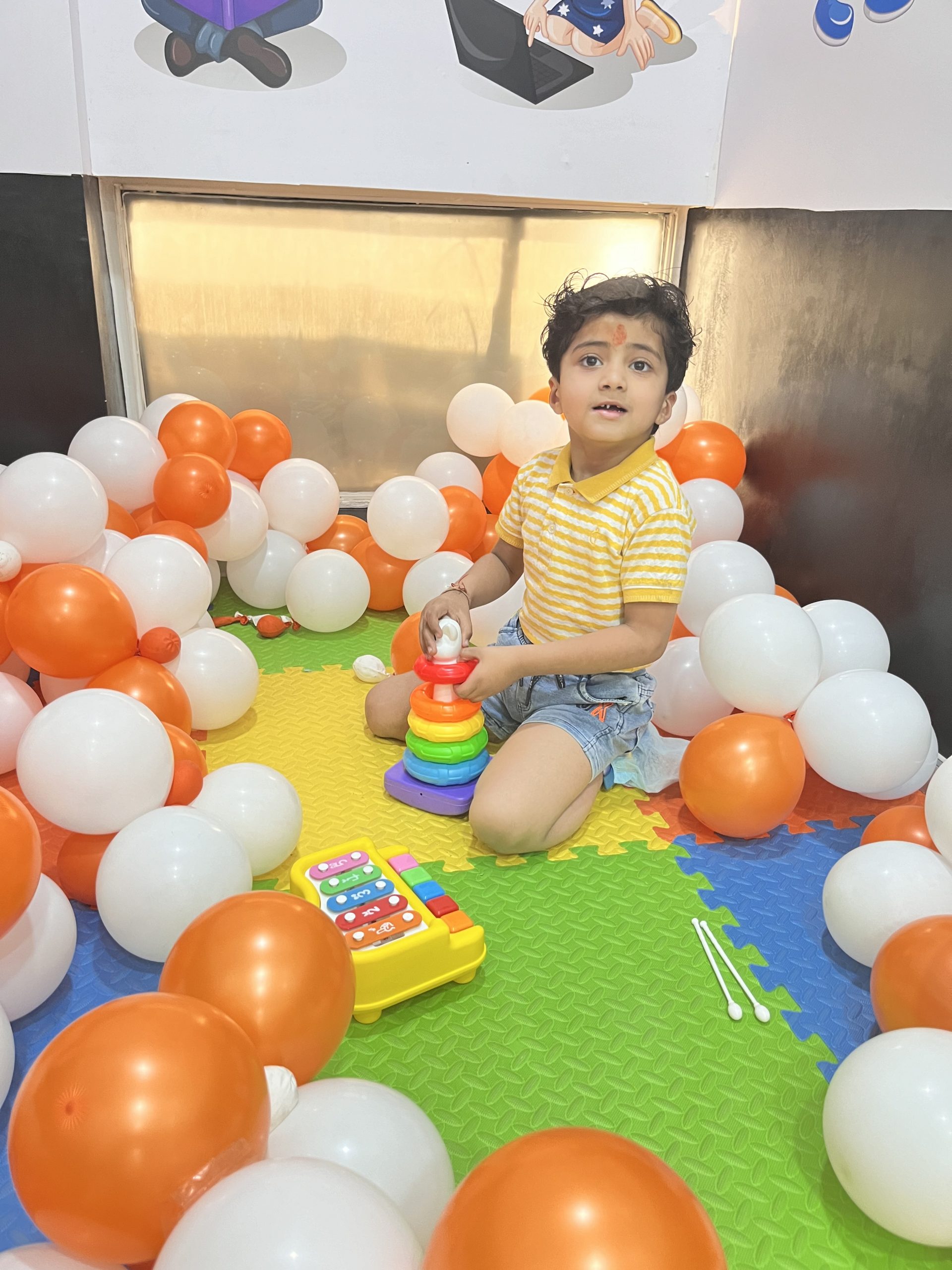
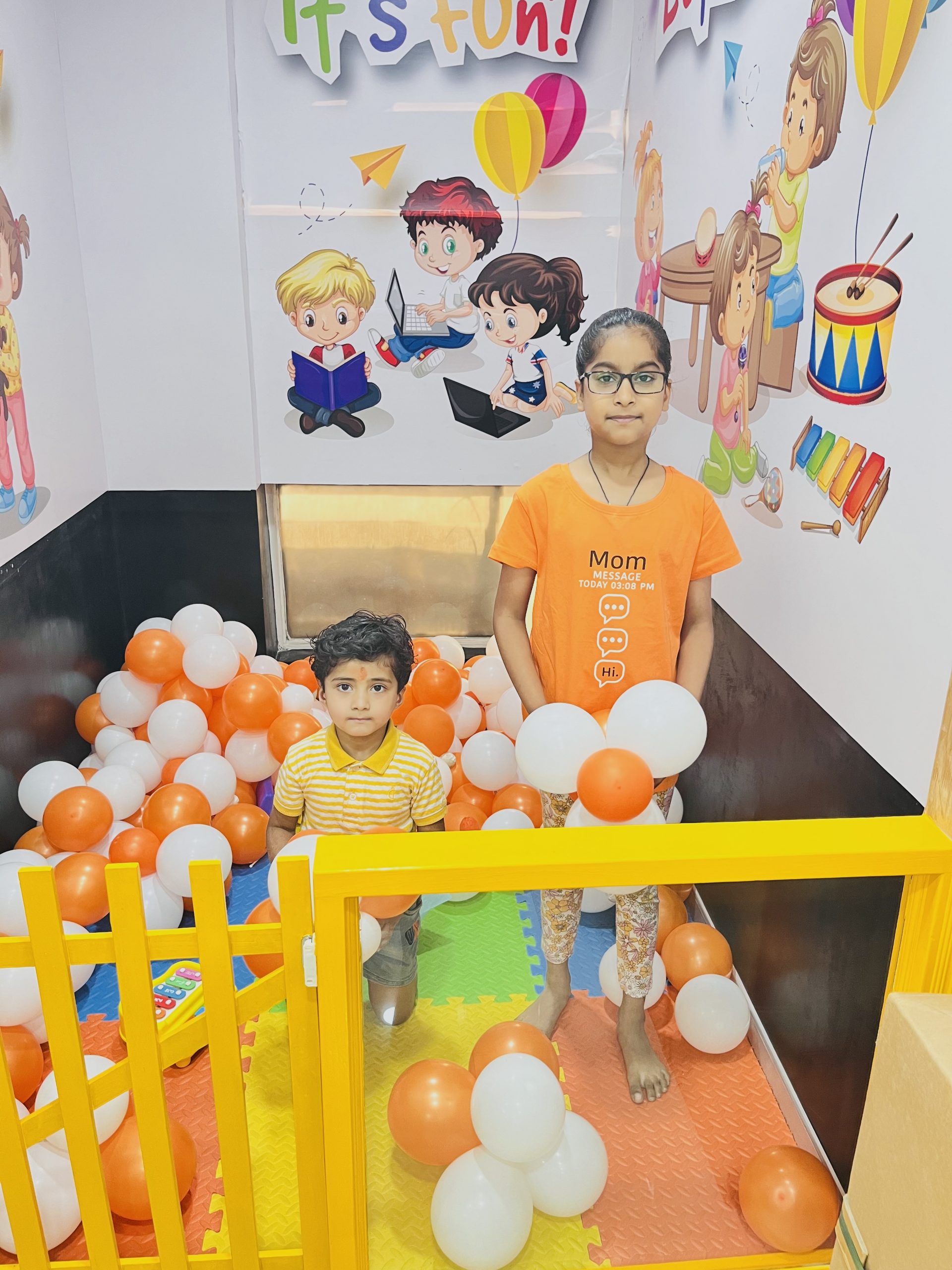
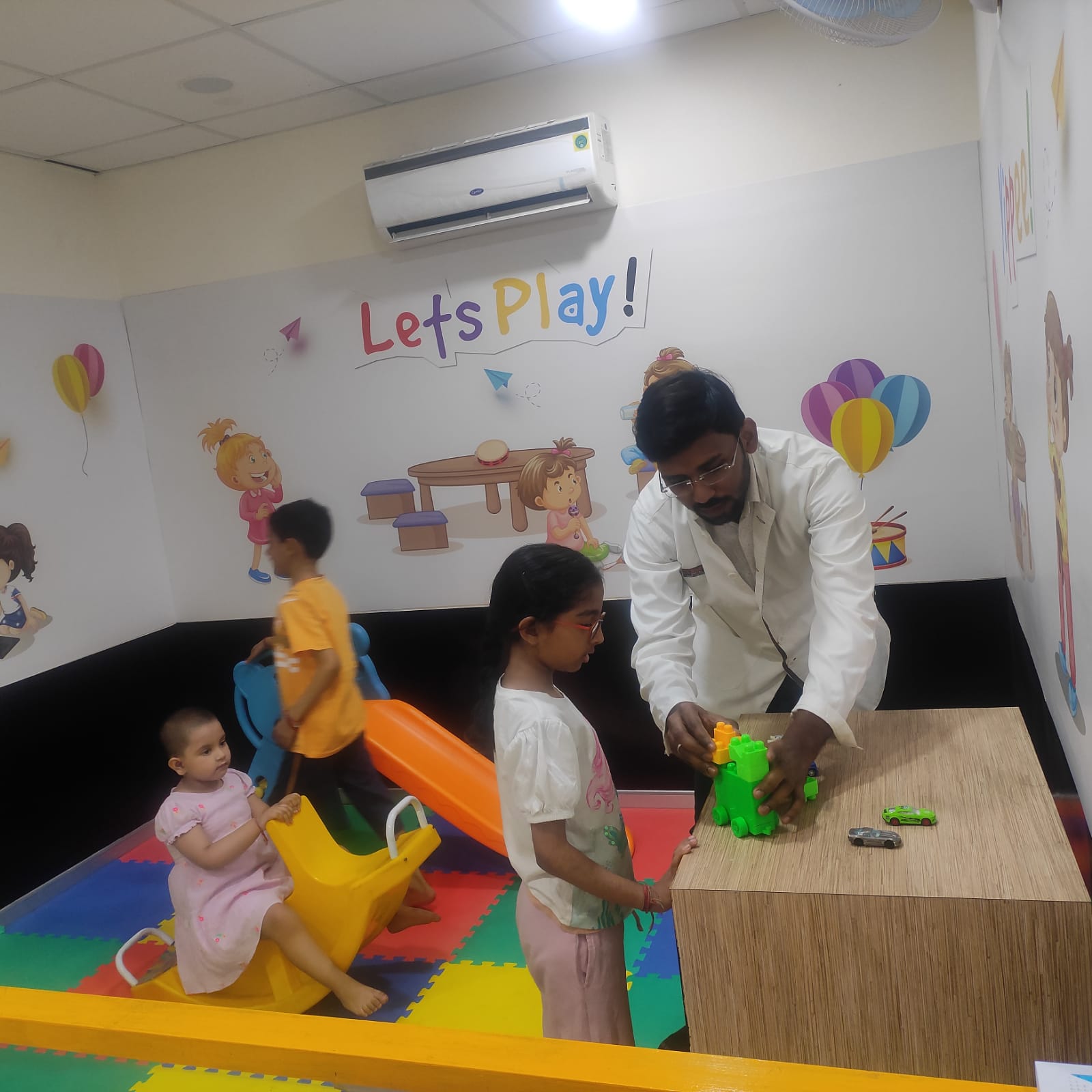
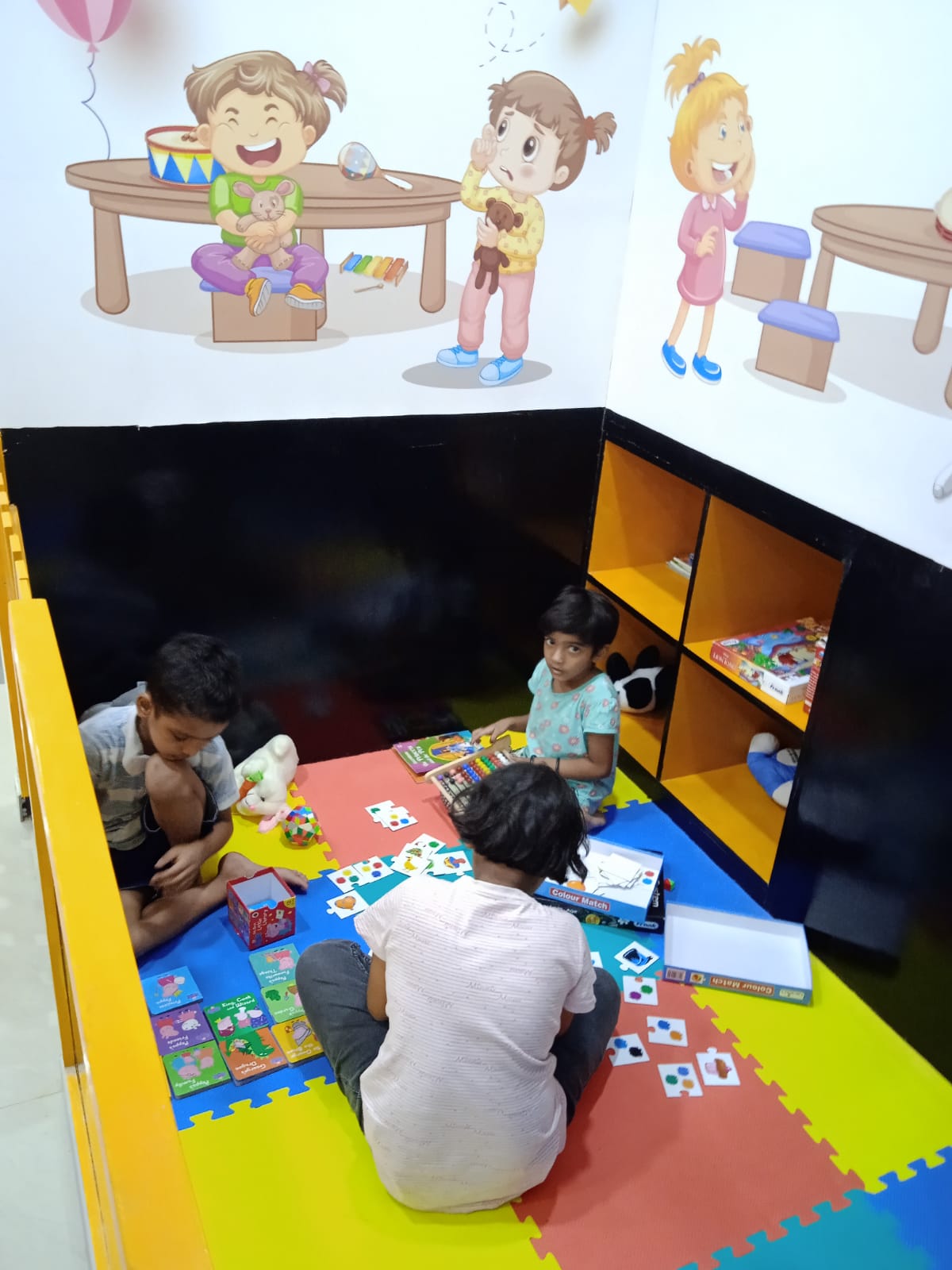



 Call us: 9393553232
Call us: 9393553232